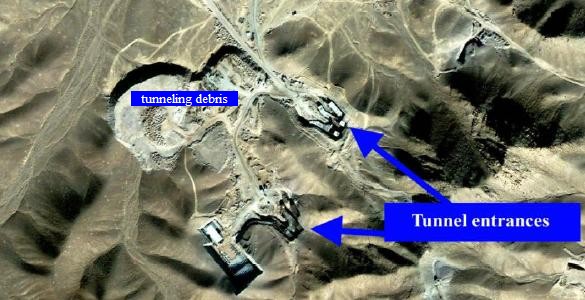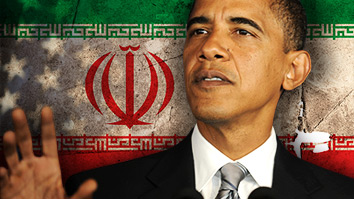Iran ‘has secret nuclear arms plan’
Britain’s intelligence services say that Iran has been secretly designing a nuclear warhead “since late 2004 or early 2005”, an assessment that suggests Tehran has embarked on the final steps towards acquiring nuclear weapons capability.
As world powers prepare to confront Iran on Thursday on its nuclear ambitions, the Financial Times has learnt that the UK now judges that Ayatollah Ali Khamenei, Iran’s supreme leader, ordered the resumption of the country’s weapons programme four years ago. [continued…]
Editor’s Comment — The American line is still, we’re all looking at the same intelligence but their are a variety of ways it can be interpreted. British intelligence is making an assertion which, if true, should be backed up by hard evidence. The US position implies that it regards this evidence as weak.
In dispute with Iran, path to Iraq is in spotlight
Gary Sick, an expert on Iran at Columbia University, said that ever since 1992, American officials had claimed that Iran was just a few years away from a nuclear bomb. Like Saddam Hussein, the clerical government in Iran is “despised,” he said, leading to worst-case assumptions.
“In 2002, it seemed utterly naïve to believe Saddam didn’t have a program,” Mr. Sick said. Now, the notion that Iran is not racing to build a bomb is similarly excluded from serious discussion, he said.
Mr. Sick, like some in the intelligence community, said he believed that Iran might intend to stop short of building a weapon while creating “breakout capability” — the ability to make a bomb in a matter of months in the future. That chain of events might allow room for later intervention.
Without actually constructing a bomb, Iran could gain the influence of being an almost nuclear power, without facing the repercussions that would ensue if it finished the job.
Greg Thielmann, an intelligence analyst in the State Department before the Iraq war, said he believed that the Iran intelligence assessments were far more balanced, in part because there was not the urgent pressure from the White House to reach a particular conclusion, as there was in 2002. But he said he was bothered by what he said was an exaggerated sense of crisis over the Iranian nuclear issue.
“Some people are saying time’s running out and we have to act by the end of the year,” said Mr. Thielmann, now a senior fellow at the Arms Control Association. “I’ve been arguing that we have years, not months. The facts argue for a calmer approach.” [continued…]
Iran offers conflicting messages
Tehran offers remarks by turns defiant and cooperative, leaving diplomats unsure if it will take seriously this week’s nuclear talks in Geneva. [continued…]
Iran is seeking a ‘two-way street’ at talks
The Iranian foreign minister, Manouchehr Mottaki, said Tuesday that talks between Iran and six major powers, which are to take place on Thursday, must be a “two-way street” and not just a long list of demands focused on his country’s nuclear program. [continued…]
Israel mutes its rhetoric against Iran as talks loom
Israeli leaders say they are willing to wait as President Obama plays out his strategy of negotiating with Iran while threatening stronger world sanctions if the talks fail. [continued…]
Iran plant could defer Israel strike
It may seem counterintuitive, but the news that Iran has a second, clandestine uranium enrichment plant, and has just test-fired long-range missiles, could actually put off any plans for a quick Israeli strike. [continued…]
China’s ties with Iran complicate diplomacy
Leaders of the House Foreign Affairs Committee swept into Beijing last month to meet with Chinese officials, carrying a plea from Washington: if Iran were to be kept from developing nuclear weapons, China would have to throw more diplomatic weight behind the cause.
In fact, the appeal had been largely answered even before the legislators arrived.
In June, China National Petroleum signed a $5 billion deal to develop the South Pars natural gas field in Iran. In July, Iran invited Chinese companies to join a $42.8 billion project to build seven oil refineries and a 1,019-mile trans-Iran pipeline. And in August, almost as the Americans arrived in China, Tehran and Beijing struck another deal, this time for $3 billion, that will pave the way for China to help Iran expand two more oil refineries. [continued…]
Iran Guards group buys 50 pct stake in telecoms firm
A consortium affiliated to the elite Revolutionary Guards bought 50 percent plus one share in Iran’s state telecommunications company for the equivalent of around $7.8 billion, Iranian media reported on Sunday. [continued…]


 new WorldPublicOpinion.org poll of Iranians finds that six in 10 favor restoration of diplomatic relations between their country and the United States, a stance that is directly at odds with the position the Iranian government has held for three decades. A similar number favor direct talks.
new WorldPublicOpinion.org poll of Iranians finds that six in 10 favor restoration of diplomatic relations between their country and the United States, a stance that is directly at odds with the position the Iranian government has held for three decades. A similar number favor direct talks.